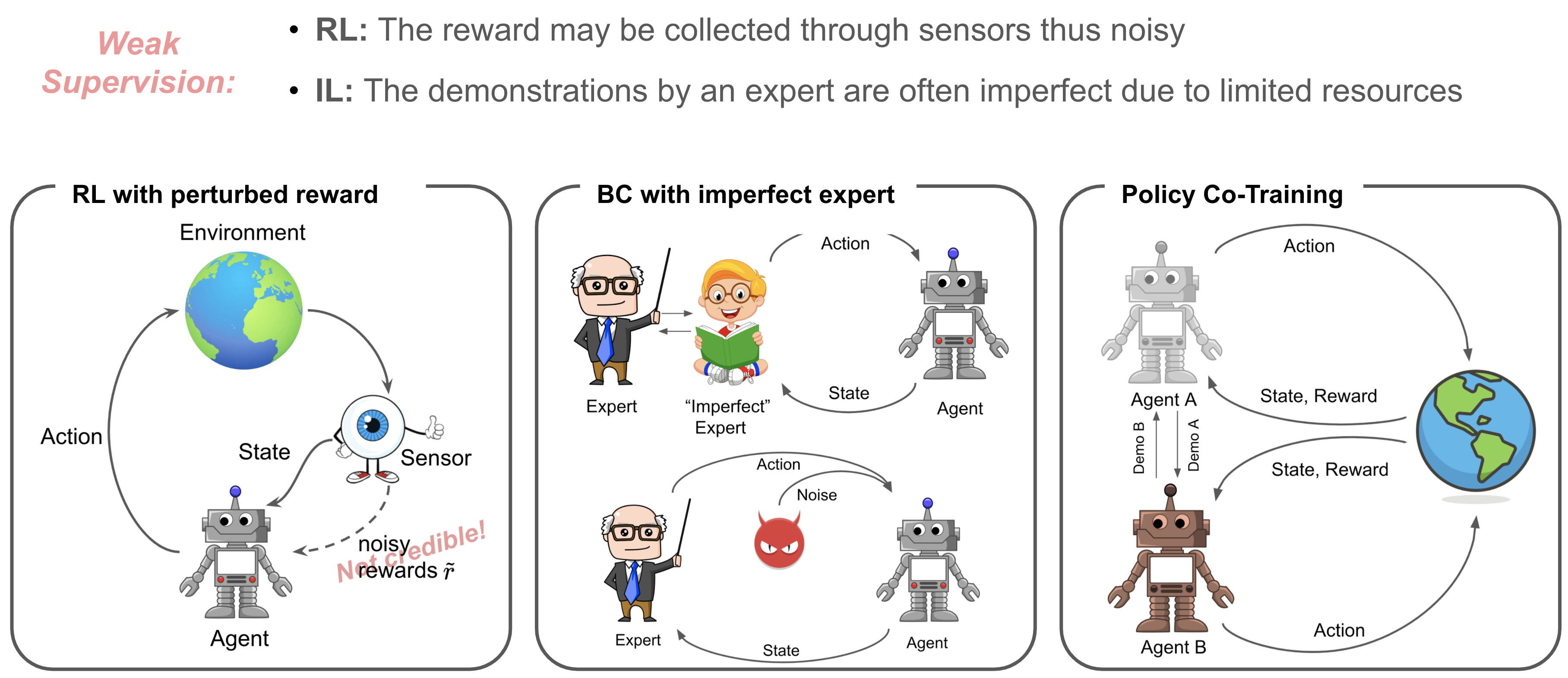Policy Learning Using Weak Supervision
Most existing policy learning solutions require the learning agents to receive high-quality supervision signals such as well-designed rewards in reinforcement learning (RL) or high-quality expert demonstrations in behavioral cloning (BC). These quality supervisions are usually infeasible or prohibitively expensive to obtain in practice. We aim for a unified framework that leverages the available cheap weak supervisions to perform policy learning efficiently. To handle this problem, we treat the "weak supervision" as imperfect information coming from a peer agent, and evaluate the learning agent's policy based on a "correlated agreement" with the peer agent's policy (instead of simple agreements). Our approach explicitly punishes a policy for overfitting to the weak supervision. In addition to theoretical guarantees, extensive evaluations on tasks including RL with noisy rewards, BC with weak demonstrations, and standard policy co-training show that our method leads to substantial performance improvements, especially when the complexity or the noise of the learning environments is high.
PDF Abstract NeurIPS 2021 PDF NeurIPS 2021 Abstract
